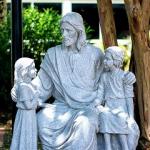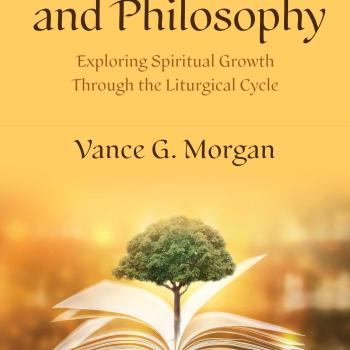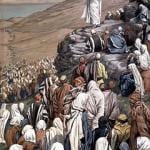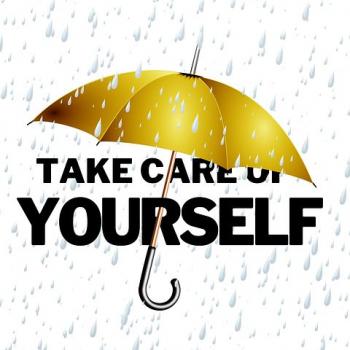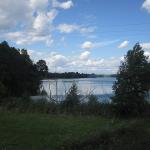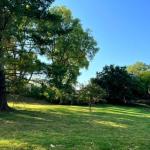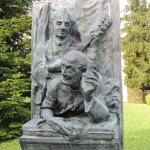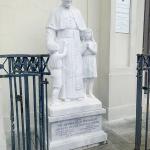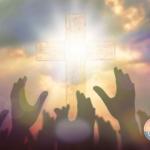The end of my revision of my book A Year of Faith and Philosophy is in sight–I hope to have it my editor and the publisher by August 1, two weeks before the deadline. Here is what I wrote for Ordinary Time 25, which falls at some point during November.
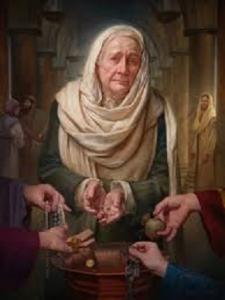
The Ordinary Time 25 gospel readings draw our attention to the importance of using what one has to further the kingdom of God rather than asking “I’m only one person—what can I do?’ Matthew provides the parable of the talents, while Mark focuses on the widow whose meagre two coin offering is declared by Jesus to be far better than the greater amounts of money that others gave, simply because the widow gave “everything she had.”
Throughout season two of “The Chosen,” Jesus’ notoriety continues to grow; about halfway through the season Jesus asks the disciples to help him plan for a “big sermon” that he intends to give soon. Some of the disciples are assigned crowd control (they are expecting thousands of people), while others are tasked with finding the perfect location for the event. Flyers are written and distributed throughout the towns around the Sea of Galilee. And Jesus asks Matthew, who has been taking notes on everything that has happened since he was called to follow Jesus some months earlier, to be his sounding board and provide critical input as he works through multiple drafts of the sermon.
By the time we reach the final episode of the season, the sermon’s content is set—except for the beginning. Creative writers and speech givers know that often the introduction is written last—Jesus goes off by himself overnight to consider and pray. At dawn he awakens Matthew and says “I’ve got it . . . a map. Directions where people should look to find me.”
The Beatitudes follow; as Jesus blesses the poor in spirit, those who mourn, those who hunger and thirst for righteousness, the merciful, the pure in heart, the peacemakers, and the persecuted, the camera cuts to scenes of various disciples and followers who exemplify each category in Jesus’ introduction. When Jesus is finished with the blessings, with tears in his eyes Matthew asks, “How is it a map?” Jesus replies, “If someone wants to find me, these are the groups they should look for.”
Psalm 146, one of the psalm options for Ordinary Time Year B, expresses a similar sentiment. I learned to love the psalms years ago as I spent several sabbatical months at morning, noon, and evening prayer with dozens of Benedictine monks; the psalms are the spine of their daily office. Over every few weeks one cycles through all of the 150 psalms, expressions of every human emotion imaginable as we seek to connect with what is greater than us. Writing a letter from prison to his parents two years before his death, Dietrich Bonhoeffer answered their question of how he spent the endless hours of nothingness in prison. “I read the Psalms every day, as I have done for years; I know them and love them more than any other book.”
The final entries in the collection of 150 psalms are praises of various sorts—noon prayers at St. John’s Abbey in Minnesota, the place where I first learned to inhabit these ancient poems, include one of the final five psalms in rotation. I always looked forward to Psalm 146, which for me summarizes what God cares about the most.
It is the Lord who keeps faith forever,
Who executes justice for the oppressed; who gives bread to the hungry.
The Lord sets the prisoners free; the Lord opens the eyes of the blind.
The Lord lifts up those who are bowed down; the Lord loves the righteous.
The Lord watches over the strangers; he upholds the orphan and the widow.
As Jesus says to Matthew in “The Chosen,” these are the types of people one should look for if one is looking to find God.
All of which serves to make sense of Jesus’ imagining of the last judgment later in Matthew 25, a passage that once again turns all of our traditional expectations on their head. When the Son of Man invites those on his right hand “to inherit the kingdom prepared for you from the foundation of the world,” because they attended to him when he was hungry, thirsty, a stranger, naked, sick and imprisoned, those on his right hand are confused. “When did we do any of these things?” they ask. “Just as you did it to one of the least of these who are members of my family, you did it to me.” Where to find Jesus could not be more clear.
For reflection: Where are the places where you most frequently find Jesus? Who are the people in whom you find him present most clearly?


